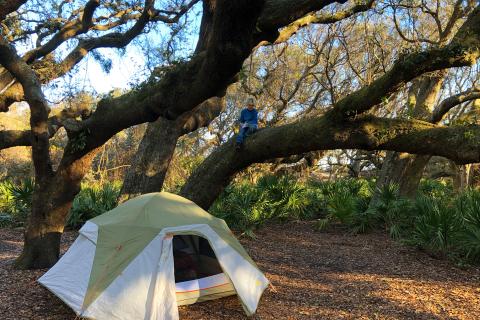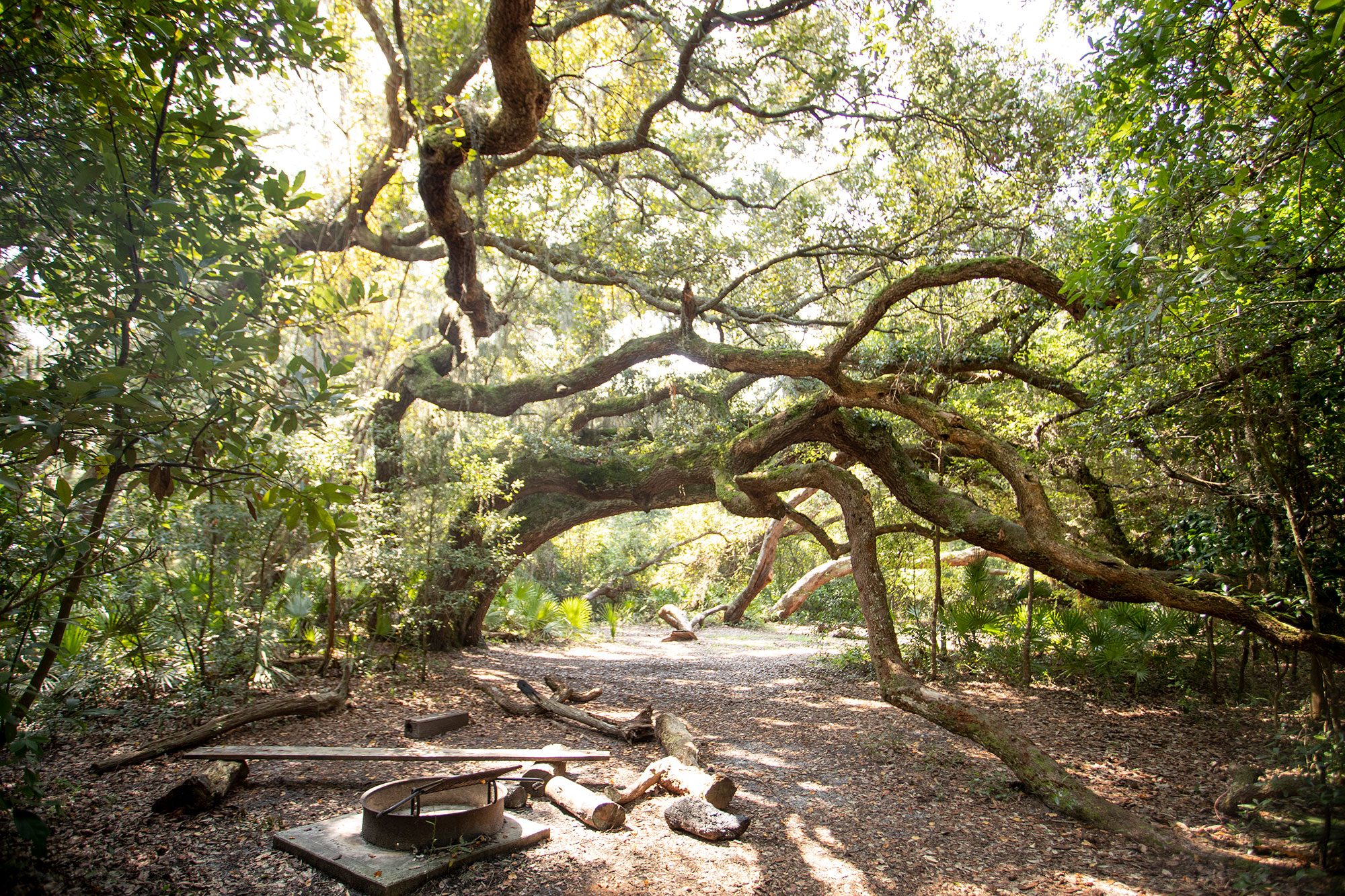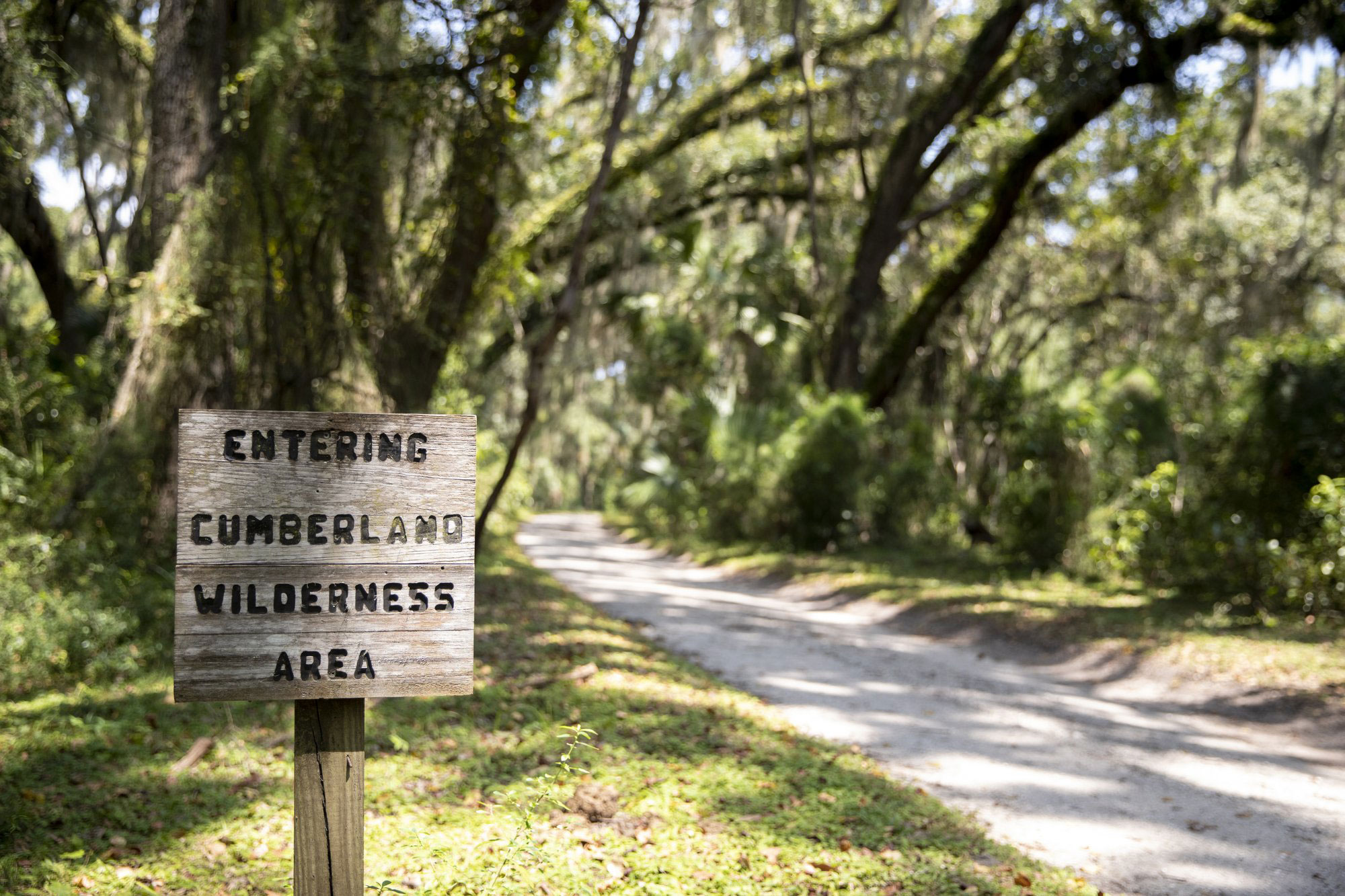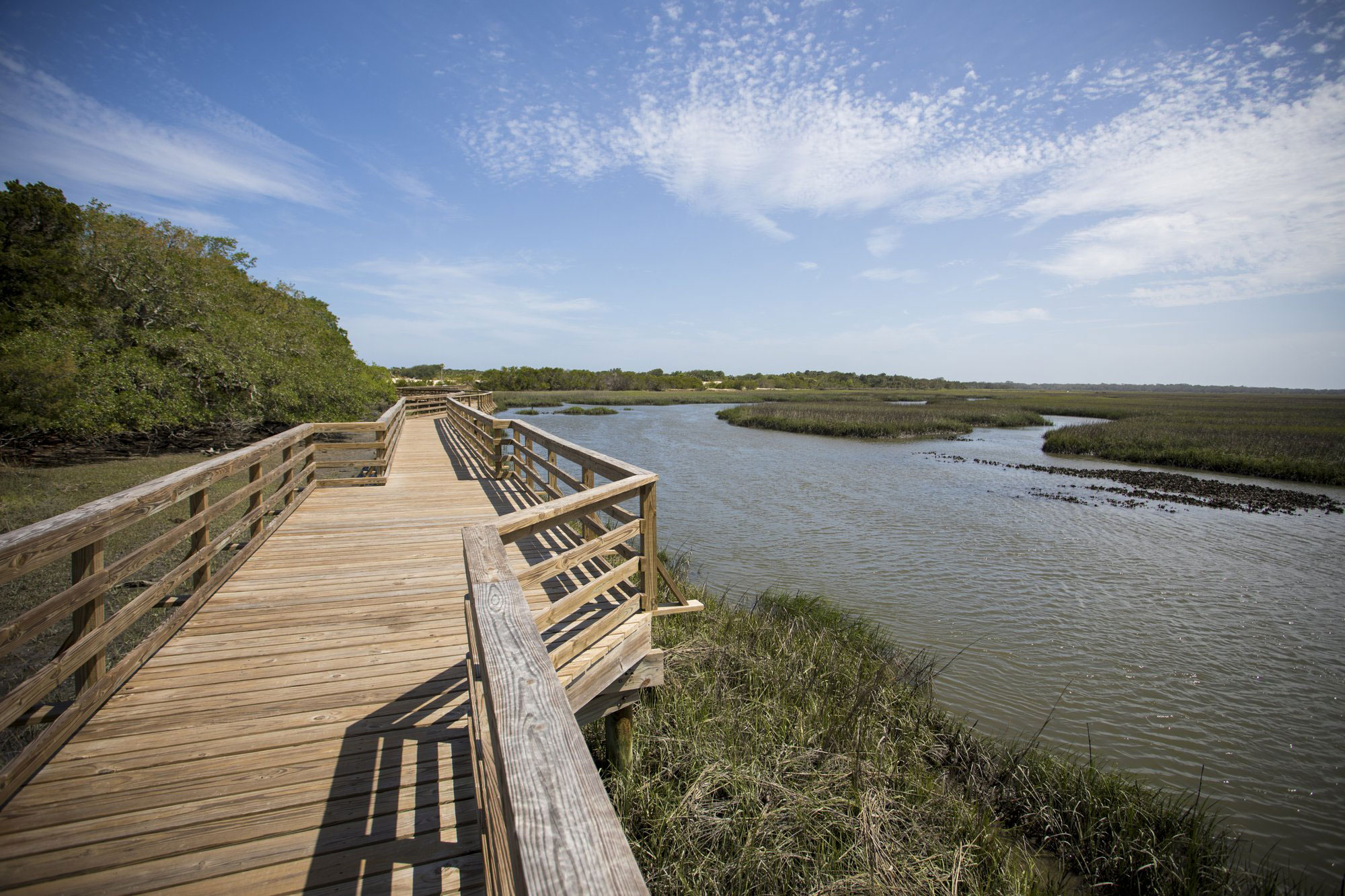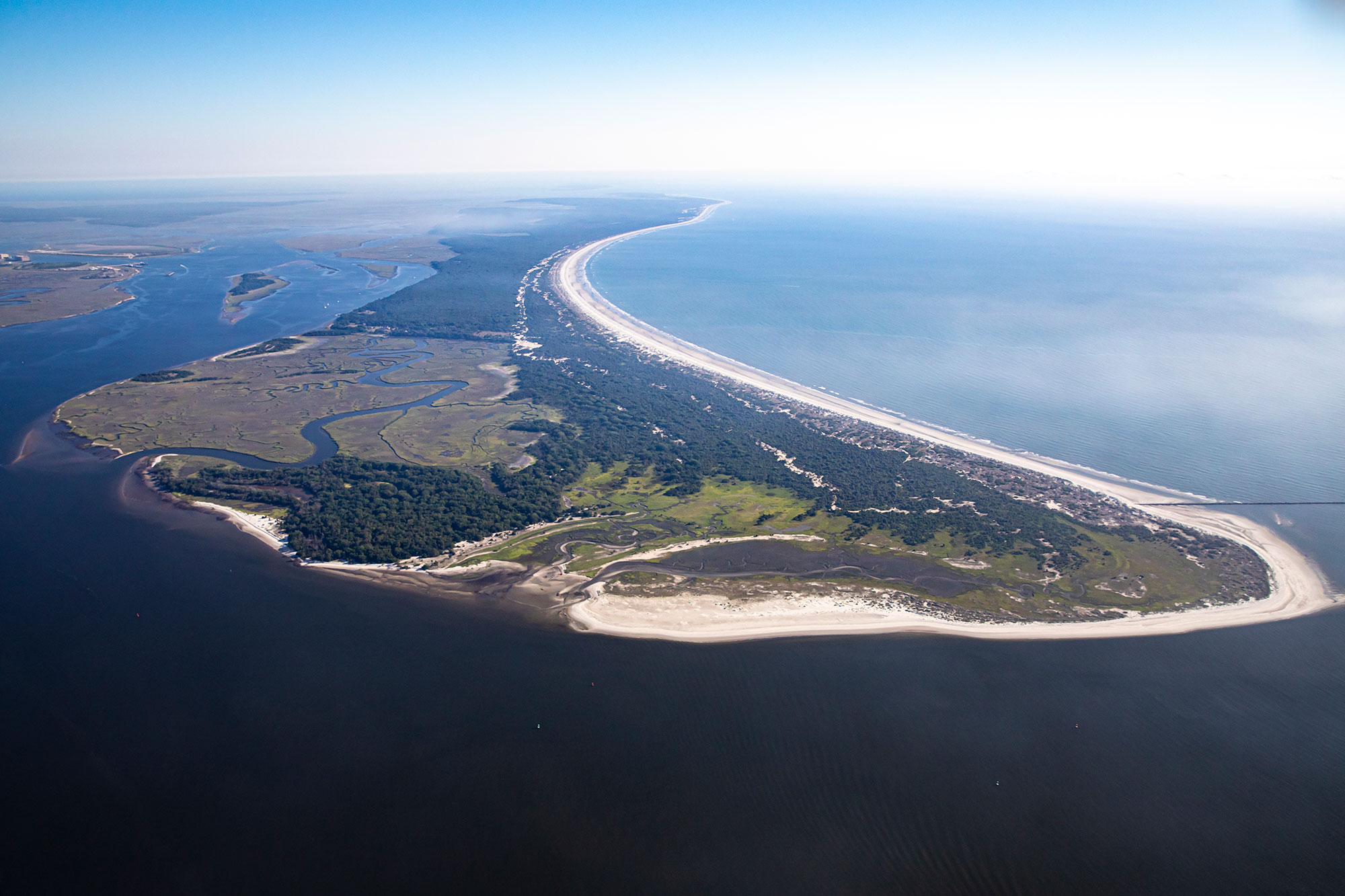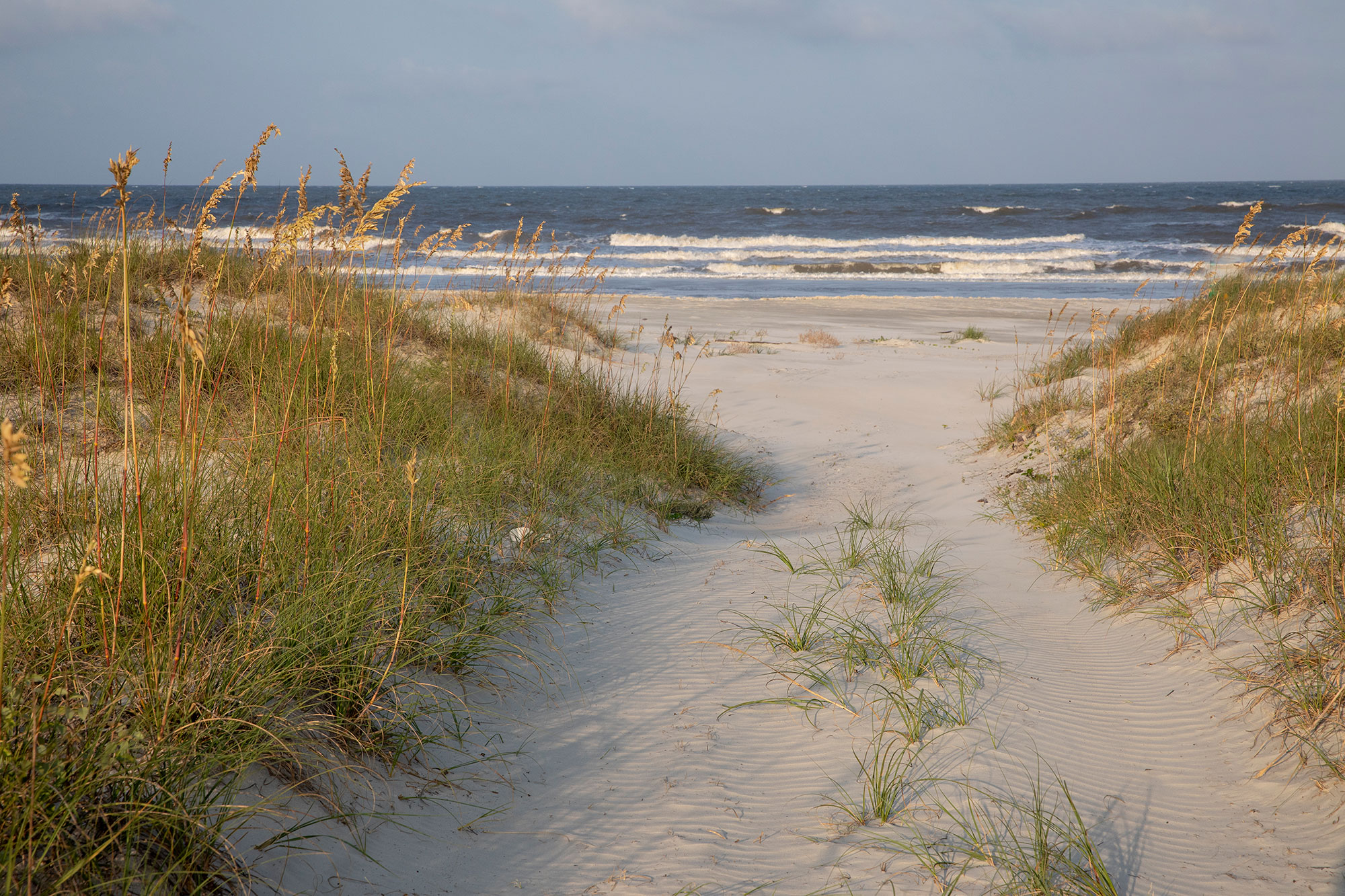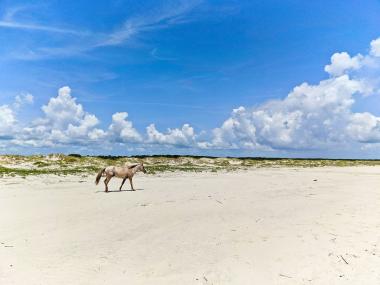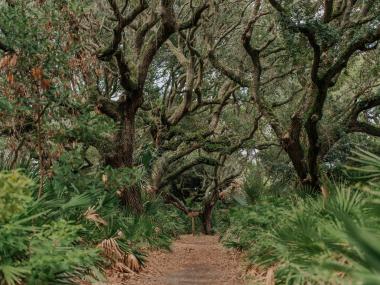A Guide to Cumberland Island Camping
From choosing a campground to timing your trip, here are a few things to know before your Cumberland Island camping trip.
Camping on Cumberland Island
Choosing Your Campground
When to Camp
What to Pack
Camping on Cumberland Island
Imagine falling asleep under a canopy of windswept oaks, listening to the distant sound of waves crashing. You peek out of your tent as you hear a rustle in the nearby palmetto thicket and watch as a wild horse steps out, bathing in the glow of starlight. She proceeds past with a majestic stride as you fall back asleep, the ocean breeze laying over you like a blanket. This is barrier island camping, and there is no place more magical for the experience than the Cumberland Island National Seashore.
Camping on Cumberland Island is a truly rewarding experience. It takes a fair amount of planning and effort compared to a typical car camping experience but is absolutely worth it. Here are a few tips I’ve learned over many years of camping on Cumberland that can help you plan an unforgettable trip.
Choosing Your Campground
The first thing you need to know is that reservations are required. This ensures that you have a place to stay, as Cumberland is only accessible by ferry or boat.
Choosing your campground on Cumberland Island is akin to choosing your level of adventure. Sea Camp is the most popular campground. Located a half-mile from the ferry dock, it’s the most developed. Offering bathrooms, showers, charging stations and more, it’s a great place for the beginner or family.
If you’re looking for something a little more adventurous, my personal favorite is the Stafford Beach Campground, located a short 3.5-mile hike from the ferry dock. Here, you’ll find 10 well-spaced-out sites sharing a bathhouse with plumbing, cold showers and electrical outlets. A boardwalk through the dunes takes you to a truly secluded pristine beach.
If you are looking for something even more remote, Cumberland offers three other campgrounds in their “Wilderness” category. These sites have no amenities, offering only clearings for tents amid the natural habitat. There’s nearby water from a well, but it must be treated before consumption. Hickory Bluff, Brickhill Bluff and Yankee Paradise are 5.5, 7.5 and 10.5 miles (respectively) from the ferry dock and are truly backcountry.
When to Camp
As in any adventure, weather plays a vital role in decision-making, and the time of year you go should definitely be considered when planning your camping trip to Cumberland. The summer is HOT on the Georgia coast, and the humidity only elevates it. You can get some reprieve from the ocean breezes, and you’re most likely to find them at the Sea Camp and Stafford Beach sites. The wilderness sites are situated more toward the interior of the island.
The fall and winter months are beautiful here and ideal for camping, and everybody knows that. Reservations can be hard to come by during these prime weekends. Personally, I prefer the summer months. You will find fewer campers, for sure, and it’s hard to beat late-night summer beach walks to cool off.
What to Pack
Packing for this trip is as crucial as ever. There is no store on the island and no camp host. You pack in and pack out, including all of your trash; there are no trash cans on Cumberland.
When thinking of what food to bring, you should remember the limitations you will find on Cumberland. There’s no electricity in your site and very few amenities. Sea Camp sites boast picnic tables, which come in handy for food prep and eating. Both Sea Camp and Stafford Beach sites offer fire pits with grill grates and food lockers to protect your food and gear, but you will need to hang food and trash in the wilderness sites.
The National Park website says all campgrounds have cell phone service year-round, but I’ve found it to be hit or miss in strength at times, depending on how dense the foliage is, so be prepared. Cell phones can drain quicker than normal when they are searching for a signal, so I personally always travel with a battery pack to keep essential equipment charged.
If you are camping at Sea Camp, you can use a cart to haul your gear to your campsite. This is helpful to set up a comfortable glamping experience in a remote setting. Also, pro tip here, the ferry boat sells bags of ice and routinely makes stops at the dock. So, if you are staying at Sea Camp for a prolonged period of time, you can ice up daily if needed. No gear carts are permitted north of Sea Camp, so all the other sites are true pack-in.
In addition to your normal camping kit, I would recommend bringing a few essentials particular to camping on a barrier island like Cumberland. Bug spray and sunscreen are vital, no matter the season. I would also pack bug bite ointment and sunburn cream; nothing is worse than a heavy pack on sun-burned shoulders! If you plan on visiting the beach at night during turtle nesting season between late May through mid-August (which you absolutely should!), remember to bring a red-light filter for your flashlight for the safety of the hatching turtles.
The Ultimate Getaway
Camping on Cumberland, even just for one night, is the prime way to truly experience this island. For the effort involved, I recommend a minimum of two nights to help fall into island time. Watching the morning and evening light dance through the live oaks and enjoying a cup of camp coffee on the beach is a memory that you won’t soon forget. It’s an immersion pursuit — one that shouldn’t be taken lightly, but one that won't fail you.
